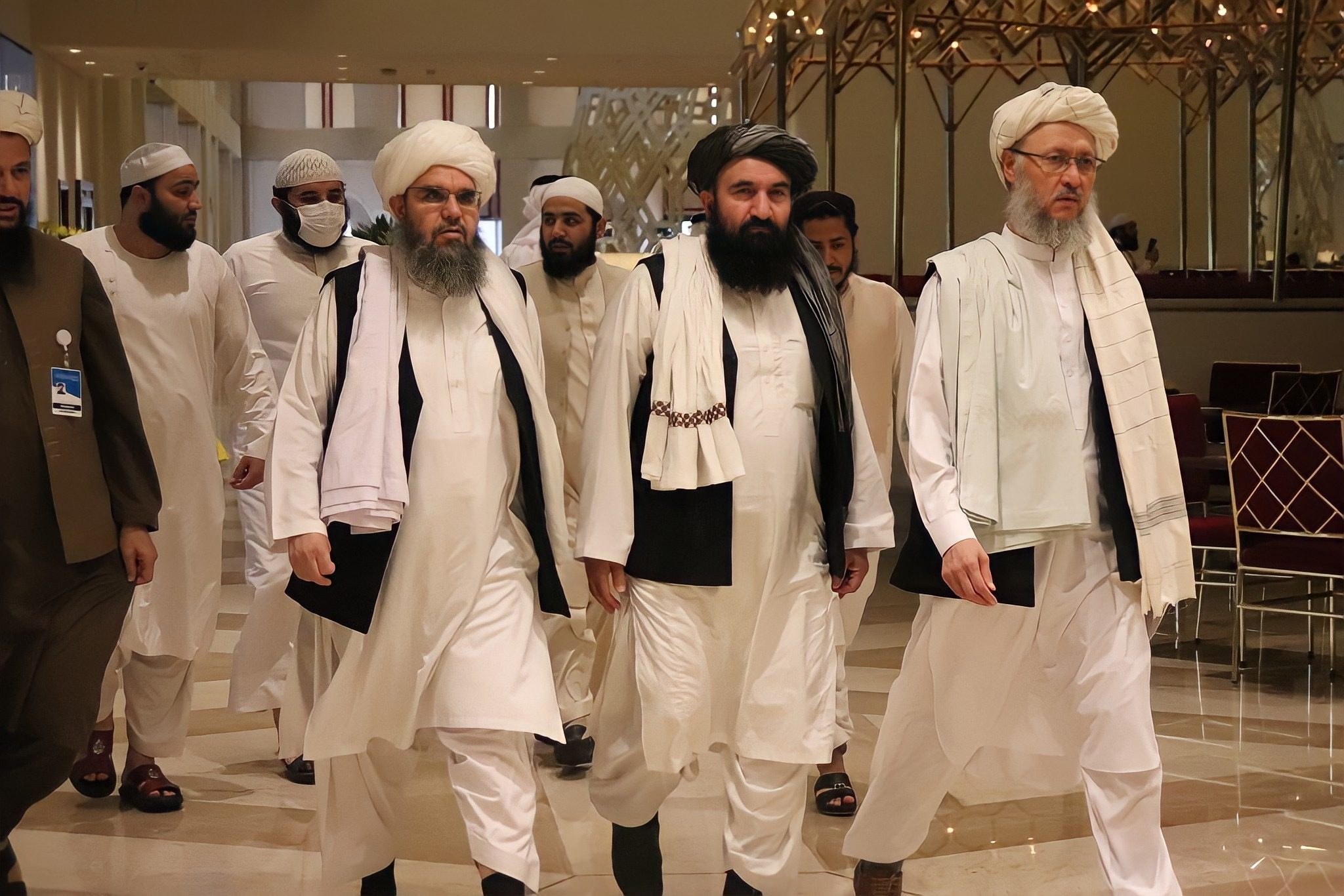Washington has ruled out normalisation with the Taliban despite the upcoming meeting.
Qatar is hosting a rare meeting between officials from the United States and the Taliban-led Afghan administration this week to address Afghanistan’s ongoing turmoil, Washington’s State Department announced on Wednesday.
In a statement, the US said its special representative for Afghanistan Thomas West and special envoy for Afghan women, girls, and human rights Rina Amiri, are scheduled to travel to Kazakhstan and Qatar between 26 and 31 July.
“In Doha, they will meet with a delegation of Taliban representatives and technocratic professionals from key Afghan ministries to discuss critical interests in Afghanistan,” the State Department said.
Washington said the agenda covers “priority issues”, including humanitarian support to Afghanistan and the treatment of women and girls.
“Priority issues will include humanitarian support for the people of Afghanistan, economic stabilisation, fair and dignified treatment of all Afghans, including women and girls, security issues, and efforts to counter narcotics production and trafficking,” the statement read.
The State Department’s Principal Deputy Spokesperson Vedant Patel said the meetings do not “indicate any change” in Washington’s policy towards the Taliban.
“I don’t have any additional details to offer beyond what was laid out in the media note that we shared[…]but also know this does not indicate any change in policy of the United States,” Patel said, responding to a question on the matter from the press.
Patel stressed the US “will engage with the Taliban appropriately” when it is in its interest to do so, ruling out normalisation with the administration.
“This is not intended to mean any kind of indication of recognition or any kind of indication of normalisation or legitimacy of the Taliban[…]the egregious human rights abuses that the Taliban is undertaking, their marginalisation of Afghan women and girls – all of those things and many others continue to be of immense concern,” Patel explained.
Meanwhile, the US envoys will meet with officials in Kazakhstan in addition to diplomats from Kyrgyzstan, Tajikistan, Turkmenistan, and Uzbekistan for a C5+1 Special Session on Afghanistan.
“They will also meet with civil society members focused on advancing women’s economic empowerment in Afghanistan and Kazakhstan,” the State Department said.
Qatar’s mediation
The US exited Afghanistan in 2021 following a deadly two-decade invasion of the country, during which at least 71,000 civilians were killed. The US and NATO troops completed their withdrawal following the Taliban’s takeover of Kabul on 15 August, 2021.
During the height of the events in Kabul, Qatar assumed a pivotal global role by evacuating more than 100,000 Afghans and foreigners from Afghanistan in what has been described as history’s largest airlift of people.
The Gulf state also agreed to relocate embassies of western countries, including the US and the UK. In recognition of its efforts in 2022, the US designated Qatar as a Major Non-NATO Ally (MNNA).
Two months after the chaotic exit, Qatar hosted the first meeting between the former warring sides, the US and the Taliban, after the latter’s takeover. The Gulf mediator hosted another meeting in November 2021 between the US and the Afghan administration.
Then in March 2022, Qatar hosted a face-to-face meeting between the two sides on the sidelines of the Antalya Diplomacy Forum in Turkiye, followed by another in July of the same year.
However, there has been a noticeable hiatus in meetings between the US and the Taliban since August last year following the US killing of Al-Qaeda leader Ayman Al-Zawahiri in a strike in Kabul.
The Taliban repeatedly said its administration had no knowledge of his presence, while the US accused the Afghan government of violating the 2020 Doha Agreement.
The agreement, signed in Doha under the Donald Trump administration, set May 2021 as the initial deadline for the US’ withdrawal from Afghanistan on the condition that the Taliban halted its support for terrorist groups.
However, the deadline was later revised to 11 September 2021 by President Joe Biden, who stripped away conditions, before then changing it to 31 August following the Taliban takeover.
Meanwhile, the US imposed additional sanctions on the Taliban last year in response to the Afghan administration’s restrictive policies targeting women in the country.
Since the group’s return to power in 2021, the Taliban has enforced major restrictions, especially in pursuing education and joining the workforce, backtracking on their initial promises of a more open rule. Most recently, the Taliban imposed a new ban on women’s beauty salons.
Qatar, among other Muslim countries, has repeatedly expressed concern over the Taliban’s decisions.
In January, Qatar’s foreign minister said Doha has been in contact with the interim government to understand the rationale behind the restrictive policies towards women and girls. He also vowed to stand with and support the women in Afghanistan.
“It’s just more and more provoking and making the situation much worse for them and for the Afghan people, we’ve been trying to reach out recently after these decisions take place. We’ve been trying also through other means jointly with other Muslim countries to talk to them and to go together,” Sheikh Mohammed bin Abdulrahman Al Thani, who is also Qatar’s foreign minister, said at the time.







